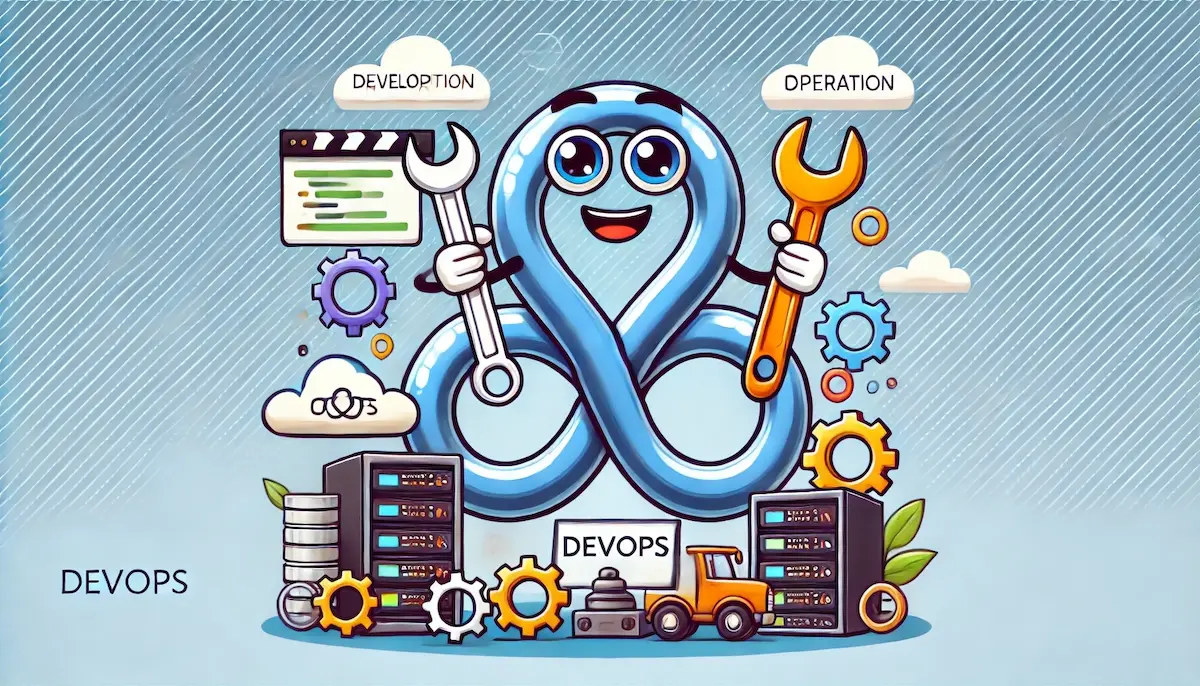DevOps is a set of practices that combines software development (Dev) and IT operations (Ops) to shorten the development lifecycle and deliver high-quality software continuously. By fostering a culture of collaboration and integration between development and operations teams, DevOps aims to improve efficiency, enhance deployment frequency, and ensure reliable releases.
Key Principles of DevOps
Collaboration and Communication
At the heart of DevOps is the emphasis on collaboration and communication between previously siloed teams—developers and IT operations. This collaborative approach helps to break down barriers, align goals, and foster a shared responsibility for the final product.
Continuous Integration and Continuous Delivery (CI/CD)
CI/CD is a cornerstone of DevOps. Continuous Integration (CI) involves regularly merging code changes into a shared repository, followed by automated testing to detect issues early. Continuous Delivery (CD) extends CI by automating the deployment process, ensuring that code changes can be released to production quickly and safely.
Infrastructure as Code (IaC)
IaC is the practice of managing and provisioning computing infrastructure through machine-readable configuration files, rather than physical hardware configuration or interactive configuration tools. This approach allows for consistent and repeatable configurations, reducing the risk of human error and enabling rapid scaling.
Automation
Automation is crucial in DevOps for reducing manual tasks, speeding up processes, and minimizing errors. Automation can be applied to various stages of the software lifecycle, including code testing, integration, deployment, and monitoring.
Monitoring and Logging
Continuous monitoring and logging are essential for maintaining the health and performance of applications. DevOps practices involve setting up comprehensive monitoring systems to detect issues in real-time, enabling quick responses and continuous improvement.
Benefits of DevOps
Faster Time to Market
By streamlining development and deployment processes, DevOps significantly reduces the time it takes to bring new features and updates to market. This agility allows organizations to respond quickly to market demands and stay competitive.
Improved Collaboration
DevOps fosters a culture of collaboration, breaking down silos between development and operations teams. This improved communication leads to better problem-solving, innovation, and a more cohesive work environment.
Higher Quality and Reliability
Automated testing and continuous monitoring ensure that code changes are thoroughly vetted before reaching production. This leads to fewer bugs, more stable releases, and a better overall user experience.
Scalability and Flexibility
With practices like Infrastructure as Code and automation, DevOps enables organizations to scale their infrastructure and applications seamlessly. This flexibility allows businesses to handle increased workloads and adapt to changing requirements more efficiently.
Enhanced Security
DevOps practices integrate security into the development process, often referred to as DevSecOps. By incorporating security checks early in the development lifecycle, organizations can identify and address vulnerabilities more effectively, resulting in more secure applications.
DevOps Tools and Technologies
A wide range of tools and technologies support DevOps practices, including:
Version Control Systems
Tools like Git and GitHub allow teams to manage and track changes to code collaboratively.
CI/CD Pipelines
Jenkins, CircleCI, and GitLab CI are popular tools for automating the integration and delivery process.
Configuration Management
Tools like Ansible, Puppet, and Chef help manage infrastructure configuration through code.
Containerization
Docker and Kubernetes are widely used for creating, deploying, and managing containerized applications, ensuring consistency across development and production environments.
Monitoring and Logging
Prometheus, Grafana, ELK Stack (Elasticsearch, Logstash, Kibana), and Splunk provide powerful monitoring and logging capabilities to track application performance and troubleshoot issues.
Challenges of DevOps
Cultural Shift
Implementing DevOps requires a significant cultural shift within an organization. Teams must embrace collaboration, continuous learning, and a shared responsibility for the entire software lifecycle.
Tool Integration
Integrating various tools and technologies can be complex and requires careful planning to ensure seamless workflows and compatibility.
Skill Gaps
DevOps requires a blend of skills in development, operations, and automation. Organizations may face challenges in finding or training personnel with the necessary expertise.
Resistance to Change
Some team members may resist adopting new practices and tools, preferring traditional methods. Overcoming this resistance requires strong leadership, training, and clear communication of the benefits of DevOps.
The Future of DevOps
The future of DevOps looks promising, with trends like AI-driven automation, serverless computing, and edge computing set to further enhance DevOps practices. As organizations continue to prioritize agility, speed, and quality, DevOps will play a crucial role in driving innovation and maintaining competitive advantage in the fast-paced technology landscape.
Blockfine thanks you for reading and hopes you found this article helpful.
